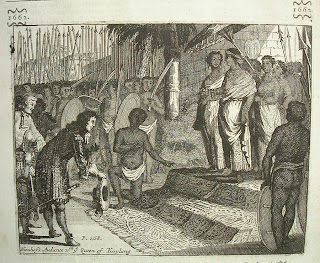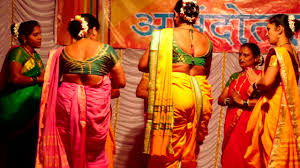PONGAL’ in Tamil Nadu.





Sankranti is the Sanskrit word, which refers to the transmigration of the Sun from one Rāshi to the other. Rashi means zodiac in Indian astrology. Thus there are 12 such sankrantis in all. However, the Sankranti festival usually refers to Makara Sankaranti, or the transition of the Sun from Dhanu rashi (Sagittarius) to Makara rashi (Capricorn).
This is popularly called as ‘PONGAL’ in Tamil Nadu.
Pongal called Thai Pongal denotes the Thai Month (January-February) as auspicious month for celebrations. It is during this month marriages are solemnized, house warming ceremony takes place, buying and selling of properties and so on. It is during this period after the harvesting availability of abundance of wealth, food grains are at ones disposal.
Pongal is well known and definitely major festival of Tamil Nadu.
Traditionally a Dravidian practice of four days festival, but now it goes up to five to seven days. Starts with rich rice crop harvesting and thanking the ‘SUN’ for showering his heat and light and yielding a good crop. It is just not Sun but also other natural resources too like earth, water, and fire.
Reference to the origin of this festivity goes back to Sangam era- 200-300 A.D. Usually this festival falls on January 13, 14 and 15 or January 14, 15 or 16 every year. The first day is called ‘Bhogi Pongal’- on this day all old accumulated thrash are cleared and set to fire. It denotes burning of ones ego, hateredness, jealously and evil thinking into ash and welcoming good thoughts. Intellectuals have compared Bhogi to the Indra Vizha celebrated by the Chola kings at Kaveripattinam (known as Poompuhar). Indra Vizha was celebrated in honour of Lord Indra, also called Bhogi, the God of thunder and rain, as farming depends upon not only good sun light but also on good rain. ‘Poli’ sweet dish also known as Puran poli in Marati, Bobbattalu in Telugu and Vobbattu in Kannada is made on this day. Some families also prepares ‘Pal Poli or Pal pur’ ayet another sweet dish prepared with milk and all purpose flour.
The following day is Soorya Pongal, is dedicated to the worship of ‘Surya’, the Sun God. Women decorate the central courtyard of their homes with beautiful kolams (Rangolis), done with rice flour and bordered with red clay. The Pongal dish is cooked exactly at the moment when the new month is born. It is first offered to the sun God as symbol of thanks giving. On this day the new rice is collected and cooked in pots until they overflow. The pot, in which the Pongal is cooked, is decorated with flowers, sugarcane pieces, turmeric plant, etc. It is this overflowing of milk which means Pongal. Rice, broken green gram lentils are cooked in the rice and at the later stage jaggery is added to it for sweet taste. Then this dish is garnished with fried cashews, raisins, almonds, coconut pieces. This overflowing of milk is a joyous occasion, and the children and adults as well will shout out 'Pongal-o Pongal!''
The third day, Mattupongal is for worship of the ‘Madd’ means cattle. On this day, the cows are bathed and decorated with vermilion and garlands and fed. In Madurai, Tanjore and Tiruchirrapalli and interior Tamil Nadu where the Bull game called ‘Jellikattu’, is played. Bundles of money are tied to the horns of bulls and villagers try and wrest the bundles from them.
Reference to the same is also found in ancient Tamil literature, where men had to discipline the bull in order to win the hand of a fair maiden. Similar to the story narrated about Lord Krishna, who is believed to have defeated seven bulls before marrying Nappinnai. Mattu Pongal has little significance to city folks. In most urban homes, the day is celebrated as Kannu Pongal. Special prayers are offered by women for the well-being of their brothers.
In some families the practice of ‘Kannu pidi’ is observed by women and young girls. Tri colour rice (Yellow rice, Red rice and White rice) balls are kept on plantain leaves topped with turmeric leaves. Usually, the elderly woman of the family takes sthe lead and gives the balls to other members. All three colours signify strength, prosperity and peace. It is heartfelt wish by women to enrich both her maternal house (Porandatth vazhi) and her house i.e., husband side called Pukkatth vazhi to be blessed with abundance wealth, good health, long life of brothers and sisiters and continuation of peaceful relationship between both families. It is also practice to visit mother’s house on Kannu pongal to observe Kannu pidi. The Tamils also remember the poet Tiruvalluvar, who was born on this. The last day is Kaanum Pongal. People pay visit to elderly people and ensure the continuation of healthy relationship.It is still a practice of going to river basin along with family and friends with prepared meals called ‘Kattasadam’ and enjoy. It is also time for some traditional dances such as kummi and kolattam. In recent years, that day is celebrated as Uzhavar Tirunal in honor of farmers.
It is also called Kari naal signifying eating non-veg on this day and also known as inauspicious day. It is called so, as to mark the day exclusive for visiting families and relatives’ at least once in a year. It is also the day to interact with elders on farm and family matters and taking their valuable concerns.










Comments